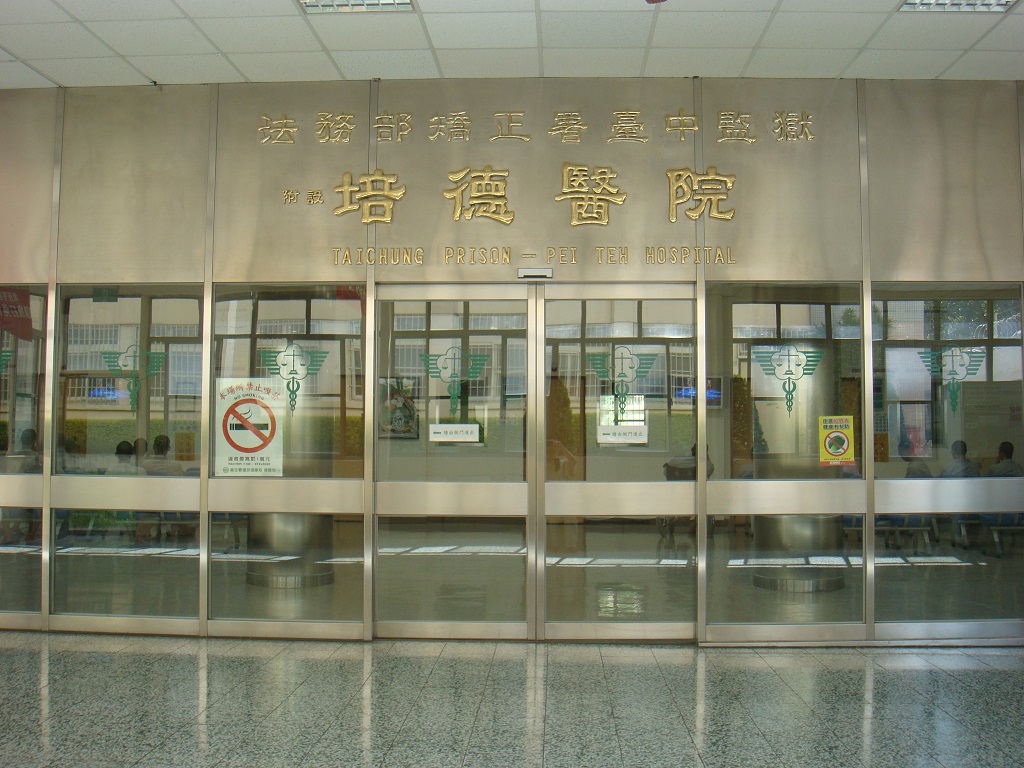Medical Treatment Special Quarter
- Publication Date :
- Last updated:2025-09-02
- View count:2156

- High Quality Medical Care Service – In accordance with the authorization by Executive Yuan, Taichung Prison established the Central Taiwan Medical Care Center, Ministry of Justice, including an affiliated hospital, Pei-De Hospital, which is a licensed prison infirmary, not only winning SNQ (Symbol of National Quality) 2011 awarded by the Institute of Biotechnology and Medicine Industry for providing high quality medical care service in prison but also being accredited by the New Hospital Accreditation program in 2011.
- Outpatient Department – There are 20 specialized clinics in the department and health promotion videos display while inmates are waiting for their appointments to improve their self-care ability.
- Guarded Wards in China Medical University Hospital – When the physician determines a necessary transfer due to a need for specialized care not available at Pei-De Hospital, the inmate will be transferred to the guarded ward in China Medical University Hospital.
- 4. Caregiver Training – Taichung Prison co-organizes a caregiver training with China Medical University Hospital which will not only assist inmates in obtaining Class C technician certificate but also allow them become proficient by taking care of the sick prisoners within correctional facilities which will further smooth their return to workforce after incarceration.
- National Health Insurance (NHI) Medical Service – Prevention is always better than cure in terms of health care. Following NHI program, the center provides adequate medical services and monitor inmates’ health conditions.
- We Care, Family Care – When an inmate is transferred and hospitalized at a medical facility outside the prison for acute or severe cases, his family members will be immediately notified and allowed to have a hospital visit.

